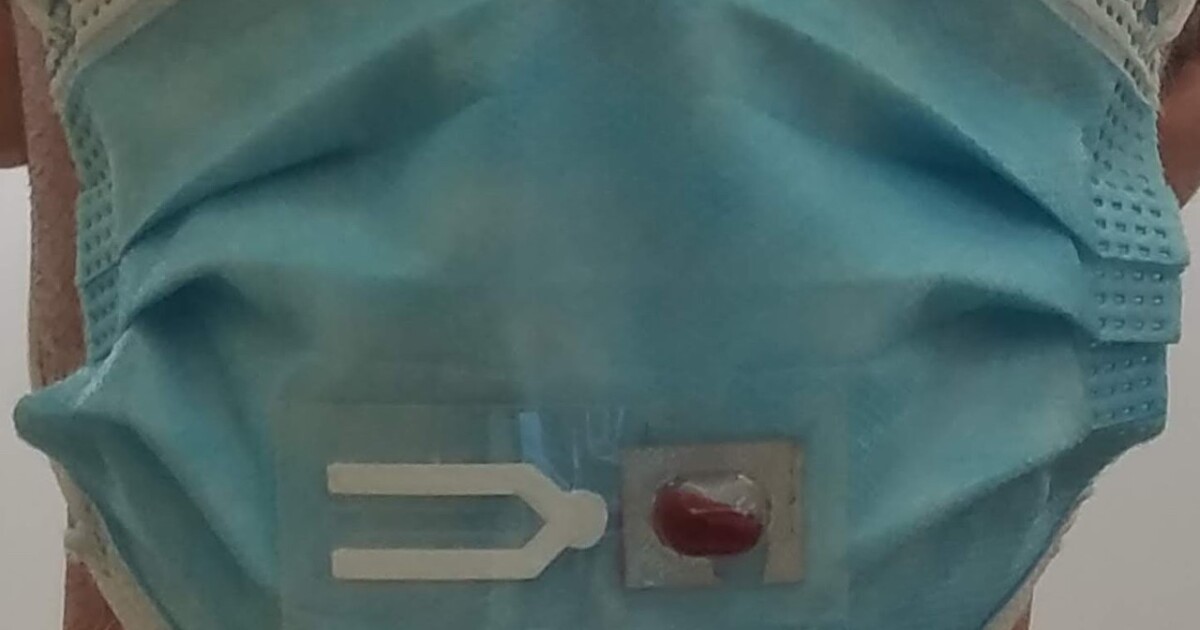The National Institutes of Health has awarded UC San Diego $ 1.3 million to develop a small wearable sensor that can tell if a person has the coronavirus or has been exposed to it by someone else.
The light sensor would be connected to face masks to monitor the presence of coronavirus-related molecules that appear in a person’s breath and saliva.
The “surveillance” test strip would also detect virus molecules expelled by someone else and possibly inhaled by the mask user.
The user would press the sensor to see if it changes color, denoting a positive reading. The process is similar to that used to check the results of a home pregnancy test.
If there is a positive reading, the mask user will test to confirm the infection. The result would be available almost immediately. The sensor is also intended to be useful in contact tracking.
“This would be a way to identify outbreaks in advance,” said Jesse Jokerst, the UCSD nanoengineering professor who leads the project. “We are redirecting something that people are already using to monitor the environment.”
The test strip, which may be ready for use later this year, is a variation of the measures UCSD is already taking to detect and prevent the spread of the coronavirus.
In the fall, the university began placing sensors in its sewage system to monitor the presence of the virus in the sewage that leaves specific buildings. When there is a positive reading, UCSD alerts people who may have used the buildings at specific times and asks them to take a COVID-19 test.
The early warning system is the largest of its kind at an American university and is likely to be in use for quite some time. Although UCSD has taken many steps to slow the spread of the virus, the campus has experienced an outbreak of infections since the beginning of the winter quarter on January 4. The school says 311 students have tested positive for the virus since then. More than 40% of students with a positive test live on campus. UCSD also reports that 88 of its employees have had positive tests since the beginning of the new quarter.
Robbins writes for the San Diego Union-Tribune.
